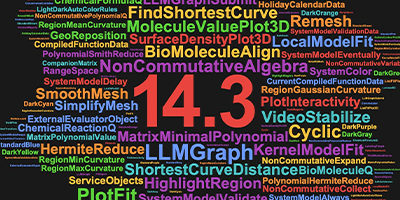Computer-Based Math Education Summit 2012
In November 2011 we held the first Computer-Based Math Education Summit in London. Over two days we brought an unprecedented cross-section of people with a stake in STEM education to address the question “In an era of ubiquitous computing, how should we rebuild math education from the ground up, to keep pace with and drive progress in the real world?”

Last year’s summit was a first glimpse at some of the work from the computer-based math community worldwide. The Computer-Based Math Education Summit 2012, again being held in London, will be tackling more of these issues in a mainstream way. If you want to have a stake in math education in 10 years’ time, this summit is unmissable.
The conference will include various interactive sessions, including live demos and audience discussions and debates, covering the following themes:
- Society’s Changing Needs for Math
- Computer Science, Maths, and ICT—Where Does Programming Fit?
- Games, Competitions, and New Modalities for Learning
- State-of-the-Art Technology for CBM
- Is CBM Winning Over the Critics?
- Assessment and CBM
- STEM Skills for University and Industry
- The Politics of Math
- Prototyping a CBM Lesson
- What’s In, What’s Out for the CBM Curriculum?
Be sure to watch videos from the Computer-Based Math Education Summit 2011 sessions and “Stop Teaching Calculating, Start Teaching Math” from Conrad Wolfram.
The change to computer-based math education is closer than ever, and Mathematica users are among the best-placed to be a part of this change.
Register now for the Computer-Based Math Education Summit 2012.



Like far too many educationalists you miss the crucial point about the age of the students. The crucial age range for learning maths is from 10 to 15. Of this the ages 10 to 12 do not need an advanced mathematician as teacher, nevertheless the teacher must be good at teaching what little maths he does know. There has been virtually no opinion expressed as to whether a boarding school environment is better than a day school environment for learning maths. I do not think these questions are going to be settled by computers until the humans can ask the right questions.
Further to my comment of 11 September 2011, the mathematical subjects which need to be taught between the ages of 10 and 15 are long division, fractions, decimals, geometry particularly the theorem of Pythagoras, graphs, logarithms, trigonometry, compound interest, present value, the sinking fund and present value equations, factorials and the binomial formula.
I would like to enlarge on my comment of 11 September 2011, by asserting that it is the maths which is taught to 10 to 12 year olds which is crucial. The teacher should be seen to be a good teacher, but should not necessarily have advanced maths knowledge. Paper qualifications in maths do not identify these teachers. This seems to baffle professional educationalists, mathematicians, politicians and others.